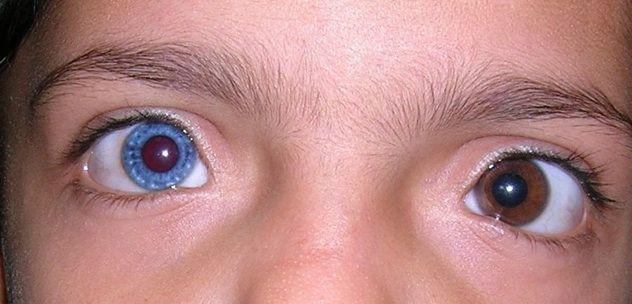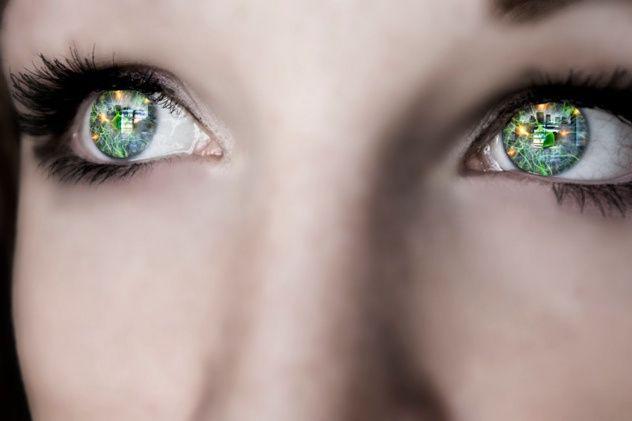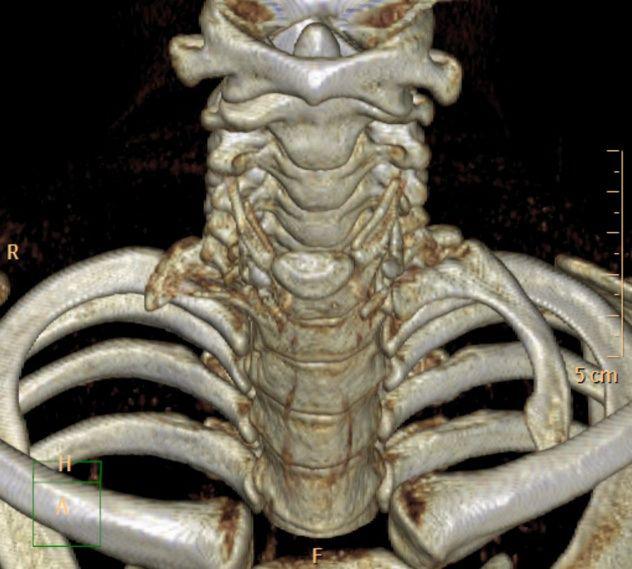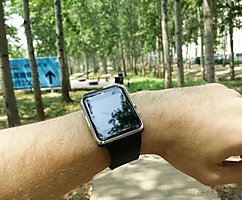10 little-known facts about the human body (10 photos)
 Bashny.Net
Bashny.Net
Of all the natural feelings to us, of course, the closest sense of our own body. However, the features of the human body are still not fully understood, and we are waiting for many more wonderful and eerie discovery. We'll tell you about the 10 most incredible and least known features of our body.
1. Allergy as a cancer prevention

reactions caused by allergens spreads through the air - one of the most unpleasant (eg, hay fever). If the products that cause allergies can not eat, and many chemical effects can be reduced, then avoid contact with plants, pylyu, pollen is extremely difficult.
However, oddly enough, there are allergies in a plus. It turns out that transferring allergens in the air somehow affect the immune system and allergies and the risk of cancers Allergy reduced. Preliminary research has shown that due to the effect of stimulating the immune system similar to vaccination, including allergies is much less cancer patients.
2. Syphilis is transmitted through kissing

Sexually transmitted infections by - the scourge of modern society, due to behavioral and socio-economic factors, as well as the lack of medical knowledge.
Syphilis - a disfiguring and eventually often fatal disease, which is one of the most serious venereal problems. It is believed that syphilis appeared in ancient times from contact with animals and unprotected sex, sexually transmitted.
However, as it turned out, this disease can be transmitted to and through a simple kiss. Infection caused by the spirochete bacteria, shown in the form of wounds in the oral cavity, as well as the hands and face. The first signs of infection - small ulcers in the mouth. If an infected person kisses another man, in some cases, the infection can occur.
3. Feeling and co-sensations

People often believe in the possibility of a sixth sense. However, in reality, a person has a much larger number of different feelings than 5 universally accepted. Vision - is actually a combination of a sense of light and sense of color. There is evidence that people, like birds, can detect magnetic fields. People also have the ability to sensations of the body, known in science called proprioception.
A variety of human perception as expressed in the synesthesia or co-sensations, when the sounds associated with certain colors or some colors relate to the literary descriptions. A person's feelings surprisingly subjective and confused, because the brain simultaneously perceives and interprets the raw data collected from all the sensory systems of the body.
4. Allergy to work there

Blaming someone else in 'allergy to work' often sounds like the banter of a lazy person. But for people with anaphylaxis caused by daily stresses, allergic to work is not a joke. It is a violation and the truth can lead to disability, and in the worst case, even life-threatening.
The tension on the job, some people are covered by the hives, but with food intake is often made worse. The exact cause of this reaction is unknown, but a similar allergy-called cholinergic urticaria occurs when exposed to high temperatures.
Doctors suggest that the substances produced by the body during stress
and modifying the metabolism associated with the nervous operation to cause an anaphylactic reaction. In theory, no treatment such complications can be deadly.
5. Different eye color and size of mammary glands

People, like animals, nature endowed symmetrical bodies. However, some people are born with heterochromia or with a different eye color. One eye may be blue, and the other hazel.
Perhaps the cause is a gene mutation, a combination of different cells. Basically people is innate feature, but in rare cases it may be the result of treatment. Most often are asymmetric breasts - left breast in women is a little more right.
6. Herpes - a possible cause of blindness

In developed countries, about 60 percent of the population are carriers of the herpes simplex virus that causes skin lesions. Most people perceive this viral disease as an annoying nuisance, but herpes is potentially dangerous and is one of the major causes of blindness.
Herpes simplex virus lives in the facial nerve and in the active phase manifests itself in the form of skin lesions. Sometimes, the virus also affects the optic nerve and the trigeminal.
During the active phase of herpes can damage the cornea. Complications can lead to keratosis, necrosis of tissues eye and blindness.
7. Our bodies remember everything

In traditional Western models of psychology and physiology of the brain is usually regarded as the intellectual center, where thoughts are formed and stored memories. However, people who underwent organ transplantation, say that something has changed in their personalities.
This aroused the interest of some researchers, who suggested that people's thoughts and memories may occur due to cellular memory of transplanted organs.
There have been documented cases where people have postoperatively changed eating habits and even sexual orientation. In one, a supernatural event, a person, who transplanted the heart of the victim has led police to the killer. While no one really can not say whether these changes are caused by the stress of surgery or moved, when in one body joined bodies of different people, there is something more mysterious ...
8. The optical inversion

When we look at the world around us, we must remember that our bodies do not always perceive things as they really are. When you look at something, the image on the retina is inverted. That is really our eyes see everything upside down, and already the brain turns the picture.
How can err in this case the brain opens up a huge potential for the manipulation of man. In a series of experiments, the volunteers wore the lens, turn the world upside down. This change has led to the fact that the brain has ceased to respond to the inverted image. When the lenses are removed, the participants of the experiment some time saw everything upside down.
9. Additional ribs

Usually people have 24 symmetrically arranged ribs to protect the internal organs, but about one in five hundred people are born with an extra rib, going from the neck and shoulder. Cervical rib or, even more rarely, a couple of ribs, can interfere with the blood supply to the hands, causing a stop pulse when the hand moves in a certain direction. It is believed that the presence of additional ribs associated with genes that suppress the cancer cells, but the true nature of this phenomenon is unknown. In some cases, complications include numbness, tingling, coldness in hands and bulging bone.
10. toothy babies

Human babies do not develop as quickly as cubs other mammalian species. For example, once ungulates are born with the ability to walk. Teeth people usually begin to appear after 6 months, but about one in two thousand baby is born with teeth. Usually one or two teeth. Typically, these are absolutely healthy infants, as this feature is not associated with harmful genetic mutations. However, the loss of a child could choke on the teeth, and these babies can still quite painful bite during breastfeeding.
1. Allergy as a cancer prevention

reactions caused by allergens spreads through the air - one of the most unpleasant (eg, hay fever). If the products that cause allergies can not eat, and many chemical effects can be reduced, then avoid contact with plants, pylyu, pollen is extremely difficult.
However, oddly enough, there are allergies in a plus. It turns out that transferring allergens in the air somehow affect the immune system and allergies and the risk of cancers Allergy reduced. Preliminary research has shown that due to the effect of stimulating the immune system similar to vaccination, including allergies is much less cancer patients.
2. Syphilis is transmitted through kissing

Sexually transmitted infections by - the scourge of modern society, due to behavioral and socio-economic factors, as well as the lack of medical knowledge.
Syphilis - a disfiguring and eventually often fatal disease, which is one of the most serious venereal problems. It is believed that syphilis appeared in ancient times from contact with animals and unprotected sex, sexually transmitted.
However, as it turned out, this disease can be transmitted to and through a simple kiss. Infection caused by the spirochete bacteria, shown in the form of wounds in the oral cavity, as well as the hands and face. The first signs of infection - small ulcers in the mouth. If an infected person kisses another man, in some cases, the infection can occur.
3. Feeling and co-sensations

People often believe in the possibility of a sixth sense. However, in reality, a person has a much larger number of different feelings than 5 universally accepted. Vision - is actually a combination of a sense of light and sense of color. There is evidence that people, like birds, can detect magnetic fields. People also have the ability to sensations of the body, known in science called proprioception.
A variety of human perception as expressed in the synesthesia or co-sensations, when the sounds associated with certain colors or some colors relate to the literary descriptions. A person's feelings surprisingly subjective and confused, because the brain simultaneously perceives and interprets the raw data collected from all the sensory systems of the body.
4. Allergy to work there

Blaming someone else in 'allergy to work' often sounds like the banter of a lazy person. But for people with anaphylaxis caused by daily stresses, allergic to work is not a joke. It is a violation and the truth can lead to disability, and in the worst case, even life-threatening.
The tension on the job, some people are covered by the hives, but with food intake is often made worse. The exact cause of this reaction is unknown, but a similar allergy-called cholinergic urticaria occurs when exposed to high temperatures.
Doctors suggest that the substances produced by the body during stress
and modifying the metabolism associated with the nervous operation to cause an anaphylactic reaction. In theory, no treatment such complications can be deadly.
5. Different eye color and size of mammary glands

People, like animals, nature endowed symmetrical bodies. However, some people are born with heterochromia or with a different eye color. One eye may be blue, and the other hazel.
Perhaps the cause is a gene mutation, a combination of different cells. Basically people is innate feature, but in rare cases it may be the result of treatment. Most often are asymmetric breasts - left breast in women is a little more right.
6. Herpes - a possible cause of blindness

In developed countries, about 60 percent of the population are carriers of the herpes simplex virus that causes skin lesions. Most people perceive this viral disease as an annoying nuisance, but herpes is potentially dangerous and is one of the major causes of blindness.
Herpes simplex virus lives in the facial nerve and in the active phase manifests itself in the form of skin lesions. Sometimes, the virus also affects the optic nerve and the trigeminal.
During the active phase of herpes can damage the cornea. Complications can lead to keratosis, necrosis of tissues eye and blindness.
7. Our bodies remember everything

In traditional Western models of psychology and physiology of the brain is usually regarded as the intellectual center, where thoughts are formed and stored memories. However, people who underwent organ transplantation, say that something has changed in their personalities.
This aroused the interest of some researchers, who suggested that people's thoughts and memories may occur due to cellular memory of transplanted organs.
There have been documented cases where people have postoperatively changed eating habits and even sexual orientation. In one, a supernatural event, a person, who transplanted the heart of the victim has led police to the killer. While no one really can not say whether these changes are caused by the stress of surgery or moved, when in one body joined bodies of different people, there is something more mysterious ...
8. The optical inversion

When we look at the world around us, we must remember that our bodies do not always perceive things as they really are. When you look at something, the image on the retina is inverted. That is really our eyes see everything upside down, and already the brain turns the picture.
How can err in this case the brain opens up a huge potential for the manipulation of man. In a series of experiments, the volunteers wore the lens, turn the world upside down. This change has led to the fact that the brain has ceased to respond to the inverted image. When the lenses are removed, the participants of the experiment some time saw everything upside down.
9. Additional ribs

Usually people have 24 symmetrically arranged ribs to protect the internal organs, but about one in five hundred people are born with an extra rib, going from the neck and shoulder. Cervical rib or, even more rarely, a couple of ribs, can interfere with the blood supply to the hands, causing a stop pulse when the hand moves in a certain direction. It is believed that the presence of additional ribs associated with genes that suppress the cancer cells, but the true nature of this phenomenon is unknown. In some cases, complications include numbness, tingling, coldness in hands and bulging bone.
10. toothy babies

Human babies do not develop as quickly as cubs other mammalian species. For example, once ungulates are born with the ability to walk. Teeth people usually begin to appear after 6 months, but about one in two thousand baby is born with teeth. Usually one or two teeth. Typically, these are absolutely healthy infants, as this feature is not associated with harmful genetic mutations. However, the loss of a child could choke on the teeth, and these babies can still quite painful bite during breastfeeding.
Tags
See also
100 Short curious facts about the human body
98 most interesting facts about the human body
100 weird and interesting facts about the human body
22 unique facts about the human body, which you do not learn in school. I did not even know ...
10 cool facts about the human eye, are little known.
Little known facts about water
37 facts about our body
10 impressive facts about our body
10 facts about the human brain
Journey inside the human body (10 photos)
















